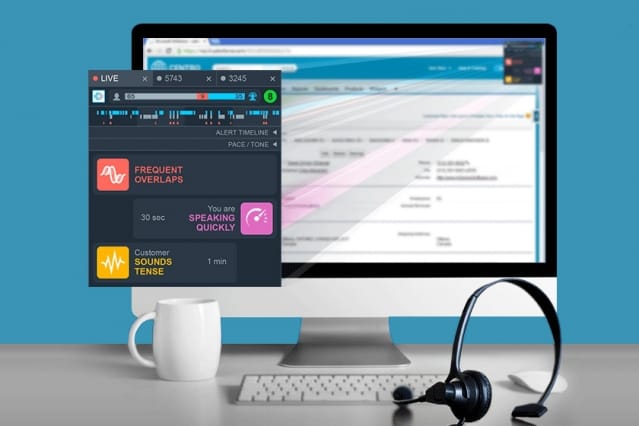Psst, call centers are monitoring your emotions now

Like most arts graduates in their twenties, I have two voices: the one I use for day-to-day interactions and the one I’ve cultivated working in service positions. The former is more sarcastic and the voice I’m likelier to employ without thinking, but the latter is genuine. When I say “have a nice day” in my service voice, I don’t not mean it, I’m just putting in more of an effort. There’s a more traditional word for this effort: labor. But what kind of labor is it? The service voice is definitely a part of menial work, but even feigning interest is a form of emotional labor. That emotional component is what makes it so easy to momentarily lose one’s service voice; it’s easier to robotically stock shelves than it is to modulate your tone at all times.
Welcome to the creeping gamification of the workplace
Help is possibly on the way. Cogito, a startup that began as a research project at MIT, has developed voice-monitoring tools that it says can help keep conversations on the right track. Although the company has conducted DARPA-funded research into tools to monitor PTSD in returning soldiers, its latest offering puts many of these same principles to work in order to improve the experience of call center clients and those who serve them. As MIT News explains it:
“Analyzing voice signals, the software determines customer engagement by tracking, for instance, if callers sound annoyed, disinterested, or confused. Speaking fast or interrupting, for instance, may indicate annoyance; an unusual series of pregnant pauses could indicate disapproval or lack of comprehension.
The software will also notify the agent if they’re building rapport with a customer, accounting for various voice signals, such as proper pacing, speaking with confidence, and expressing empathy for the customers’ situation.”
Maybe this is good news. That’s how Cogito sees it. “Through our voice analysis, we can help bridge the communication gap between customers and agents,” CEO Joshua Feast told MIT. Insofar as reading customers can be difficult and remaining mindful of your own voice is even harder, that’s a fair point. Data can be a useful tool in this regard. It can also be a micromanagerial cudgel. The constant measuring of your connection, your pacing, and your intonation, no matter how well intentioned it is, could easily begin to grate. Welcome to the creeping gamification of the workplace!

Cogito Dialog is basically a Rorschach test designed to evaluate how you feel about labour practices in 2016. If a startup hands out Fitbits to its employees and then they share and discuss sleep patterns to improve productivity, some will find it helpful and others will find it invasive. Both of these things can be simultaneously true, it just depends where any given employee decides to put the emphasis in this story. To avoid dissent, the company therefore chooses to hire based on that wonderfully vague term, “cultural fit.” And, in a sense, that solves the problem: All the company’s employees are happy and the company is small enough not to preclude all possibilities of employment for those that don’t fit. But what happens when this problem manifests itself at scale, when the imperative of keeping a job starts outweighing qualms?
Cogito is no more sinister than all sorts of workplace technologies, but it is a good reflection of the changes to the labour market over the past couple decades. “Today, a decade and a half after the [Office Space’] release, both office work and service work exert even more affective demands on workers,” writes Ian Bogost in The Atlantic. “Once work became a function of the individual mind, hand, and soul rather than the time and effort leased by a company for its ends, all labor—from waiting tables to pushing papers—became a process of singular creativity.” Going through the motions and just working from nine to five is no longer enough. Consequently, the range of workplace tasks that can be measured is growing. While measurements like attendance are focused on the menial aspects of jobs, dialog is emotional labor, even when it involves a customer who wants cable support.
///



